Augmenting Medical Intellect
AI and XR rewriting the rules of patient safety
What matters in Greek tech and startups? Stepping back from the noise and AI slop, I try to work out what’s happening and spotlight the builders swinging for the fences. If you’re not a subscriber, click below and join 7,000 readers:
Augmenting Medical Intellect
We’ve all heard or lived the horror stories: a wrong dose on a busy shift, a misread scan, a surgery complication that should never happen. Medical errors aren’t edge cases; they’re alarmingly common. In Europe alone, roughly 160,000 fatalities per year are attributed to medical errors. Globally, the tally of preventable harm reads like an epidemic.
Meanwhile, AI is seeping into everything from diagnostics to intra-op guidance. The NHS is targeting 500,000 robotic surgeries a year by 2035. But as healthcare sprints ahead, the bottleneck is often training: how we teach, assess, and maintain clinician performance at the speed new tools demand.
“Never the first time on a real patient”. Dr. George Papagiannakis cut right to the chase. I met him last spring at Open Coffee in Athens, where he showed how ORamaVR is working to rewrite medical training using extended reality (XR), AI, and computational methods, a stack called Computational Medical XR.
Papagiannakis dialled in from Thessaloniki, fresh off a trip to meet the local team. For a computer graphics professor, medicine might seem like an odd industry to disrupt. Born in Veria, he left Greece for the UK at 18. By 2000, in Switzerland, he was among the first researchers exploring XR for medicine at the University of Geneva, back when VR headsets cost $150,000, were incredibly heavy, and required a $500,000 workstation to operate. “The tech just wasn’t ready for prime time,” he told me.
What was the turning point for the industry? “Oculus”. Papagiannakis backed the 2012 Kickstarter, two years before Facebook’s $2 billion acquisition. “We went from almost unusable, expensive rigs to a modern headset that costs a few hundred dollars,” he said. It was game-changing”.
In 2016, he teamed up with the world-renowned surgeon and Aristotle University orthopaedics professor Eleftherios Tsiridis and University of Crete leading robotics professor Panos Trahanias to rethink clinical training as a spin-off of the Institute of Computer Science at FORTH in Heraklion.
His pitch is blunt: “You wouldn’t board a plane with a pilot who hadn’t logged tons of simulator hours; in medicine, the apprenticeship model still means a clinician’s first true attempt often happens on a living patient”. For over a century, clinical training has run on an apprenticeship model: students watch, then help, then eventually perform procedures.
This can mean the first intubation under pressure, the first central line in a tricky anatomy, or the first laparoscopic dissection when bleeding obscures the view. Even excellent trainees hit a wall here: rare events aren’t practised enough, team communication falters under stress, and checklists don’t build muscle memory by themselves. At best, a trainee would train on scarce and very expensive human or animal cadavers.
“We’re building the WordPress of medical training,” Papagiannakis said. ORamaVR is developing a generative-AI platform that lets medical professionals author simulation courses in XR with natural-language prompts. The 18-person team spans engineering, computer, math, and life sciences across Switzerland and Greece.
ORamaVR’s journey wasn’t a straight line. The company initially produced VR content, specifically orthopaedics modules used by prominent US universities like USC and NYU to train residents for total knee arthroplasty, one of the fastest-growing surgical operations in the US. They soon realised this model wouldn’t scale and changed course. The company pivoted to a VR platform for clinicians to produce courses themselves, which was the early forerunner of what users experience today.
Customers now range from university hospitals to medtech giants, including Roche, the NHS, the University of Michigan, Geneva and the University of Athens, training everyone from thoracic and pancreatic surgeons to nurses and emergency teams. The workflow? Turn plain text into 3D, interactive simulations.
Halfway through our chat, I paused to let Papagiannakis zoom in on extended reality, a term that was bloated until recently as companies jumped on the metaverse bandwagon. “Extended reality (XR) is an umbrella phrase covering virtual reality (VR), augmented reality (AR), and mixed reality (MR). VR fully immerses you in a simulated environment via a headset; AR overlays digital information onto the real world; MR blends the two”, he added.
Why isn’t XR everywhere in medicine already? “It’s systemic,” Papagiannakis said. “Healthcare is conservative for good reasons. You need clinical evidence. A lot of early medical XR products overpromised and frustrated users.” ORamaVR’s response has been to publish and co-author with top institutions like Stanford and Harvard. The company cites 16% improvement in skill transfer from VR to the real world, up to 30% gains in psychomotor dexterity for specific tasks, and ~80% error reduction in measured scenarios.
You might assume robotics and AI make training less critical, yet the opposite is true. New tools change workflows constantly, software and hardware evolve every few months, and legal and insurance frameworks add friction. “There aren’t enough trainers, and the stack keeps shifting,” he said. “It’s messy and that’s exactly why simulation matters.”
If XR can effectively train clinicians, can it assist them at the bedside and in the operating room? Papagiannakis thinks so. “That’s where the field is going,” he told me. “We started with training, but we’re heading toward patient-specific digital twins — built from imaging like MRI — so clinicians can rehearse and then see contextual guidance in real time. The form factor will look more like glasses than a clunky headset.”
ORamaVR’s vision is unambiguous: every medical professional, surgeon, nurse, and physician should first practice on a 3D digital patient before touching a real human. Call it the end of “first-time on a real patient” and the beginning of something far safer, healthier, and economical.
Top News
Greek AI mafia is real
7% of top papers (oral presentations) this year had a Greek co-author at one of the big three AI conferences (ICML). Scan the list and you will spot 10 Greek scientists across Microsoft, CMU, ETH Zürich and more; 7 of 10 are NTUA grads. It tracks a pattern I’ve flagged before on the “Optimism” piece from NeurIPS and beyond.
Cisco opens office in Crete
Cisco opens office in Heraklion, Crete, taking its CodeBGP acquisition further. Being part of this journey as backers at Marathon has been inspiring as the team now celebrates not just a new office, but the growth of a team that continues to innovate and contribute globally from right here in Greece.
iCOMAT opens state-of-the-art space manufacturing facility
Long-time readers will remember iCOMAT from the “Manufacturing the future” post. Fast forward three years, and the company just cut the ribbon on a state-of-the-art space manufacturing hub in the UK expected to create around 2,000 jobs, signalling the UK’s intent to onshore more of the satellite supply chain and structural hardware know-how. The company is hiring in Greece (see below).
Open Coffee Athens is back on Friday, October 31
Come join us at Benaki Museum and hear from Nikitas Mavrakis, Robenso (recycling robotics), Nikos Tsirakis, Pandectes (privacy compliance for 150k+ Shopify stores), Christos Georgopoulos, Inaccess by Power Factors (founding to exit story of InAccess to Vista Equity Partners and Powerfactors). RSVP here.
Join a Startup
Greece-based job opportunities you might find interesting:
PolyModels Hub (pharma AI): Product Designer
iCOMAT (advanced composite structures): Talent Acquisition Manager
Caresma (elder care): Founding Full-Stack Engineer
PlugSecure (cybersecurity for EV): Head of Sales
Keragon (healthcare automation): B2B SaaS Growth Marketing Manager
Morphoses (edtech): Product-Led Growth Marketer
Additionally, you can find more jobs here.
Fundings
Six months after our chat with Ioannis Antonoglou (DeepMind founding engineer turned Reflection co-founder), the company has reportedly raised $2b to build an open-source rival to OpenAI/Anthropic — and a Western counterweight to China’s DeepSeek — at an $8b valuation.
Phagos raises €25m to launch phage-based veterinary drugs and go after bacterial diseases.
Clove comes out of stealth with $14m pre-seed to close the financial advice gap (founded by ex-Trouva CEO Alex Loizou), backed by Accel.
Temple raises $5m to build privacy-focused solutions for trading in capital markets.
Genie Fertility lands $1.22m pre-seed for a non-invasive uterine health diagnostic using menstrual blood.
CarVest secures its first round (equity + venture debt) for car-leasing expansion.
Reconcilio picks up €200k to automate reconciliation for accounting teams.
Phaistos Investment Fund announced an investment in banking solutions Natech, following the company’s $33m Series B announcement last July.
Theti Club invests in Perceptual Robotics for automated wind-turbine inspections.
M&A
Staking company Figment acquires Rated Labs, the blockchain analytics firm I profiled in 2022’s “Reputation for Machines.”
EssilorLuxottica buys RetinAI to pull more AI into eye health across brands like Ray-Ban and Oakley.
Groupe Saretec picks up GreenTriangle, a platform powering crop insurance workflows.
Events
Marathon is back in Paris on Oct 29 for a long-overdue Greeks in Tech meetup. We look forward to catching up and sharing what’s new. As always, beers are on us! RSVP here.
Greece’s largest tech festival, Panathēnea, returns May 27–29, 2026 and is now scaling to 10,000 attendees. Pre-register here to secure the lowest ticket price.
That’s all for this week. Tap the heart ❤️ below if you liked this piece. It helps me understand which themes you like best and what I should do more.
Find me on LinkedIn or X. Thank you for reading.
Alex

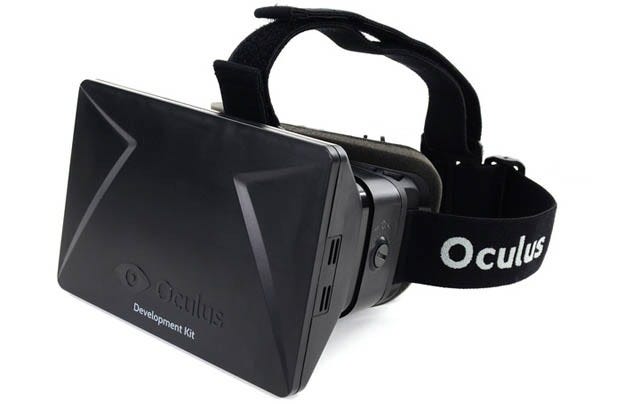
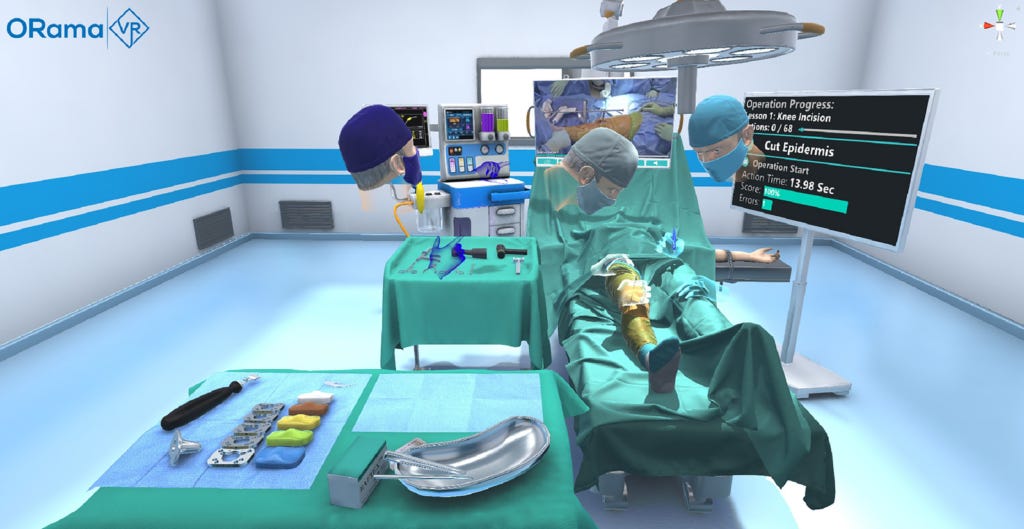
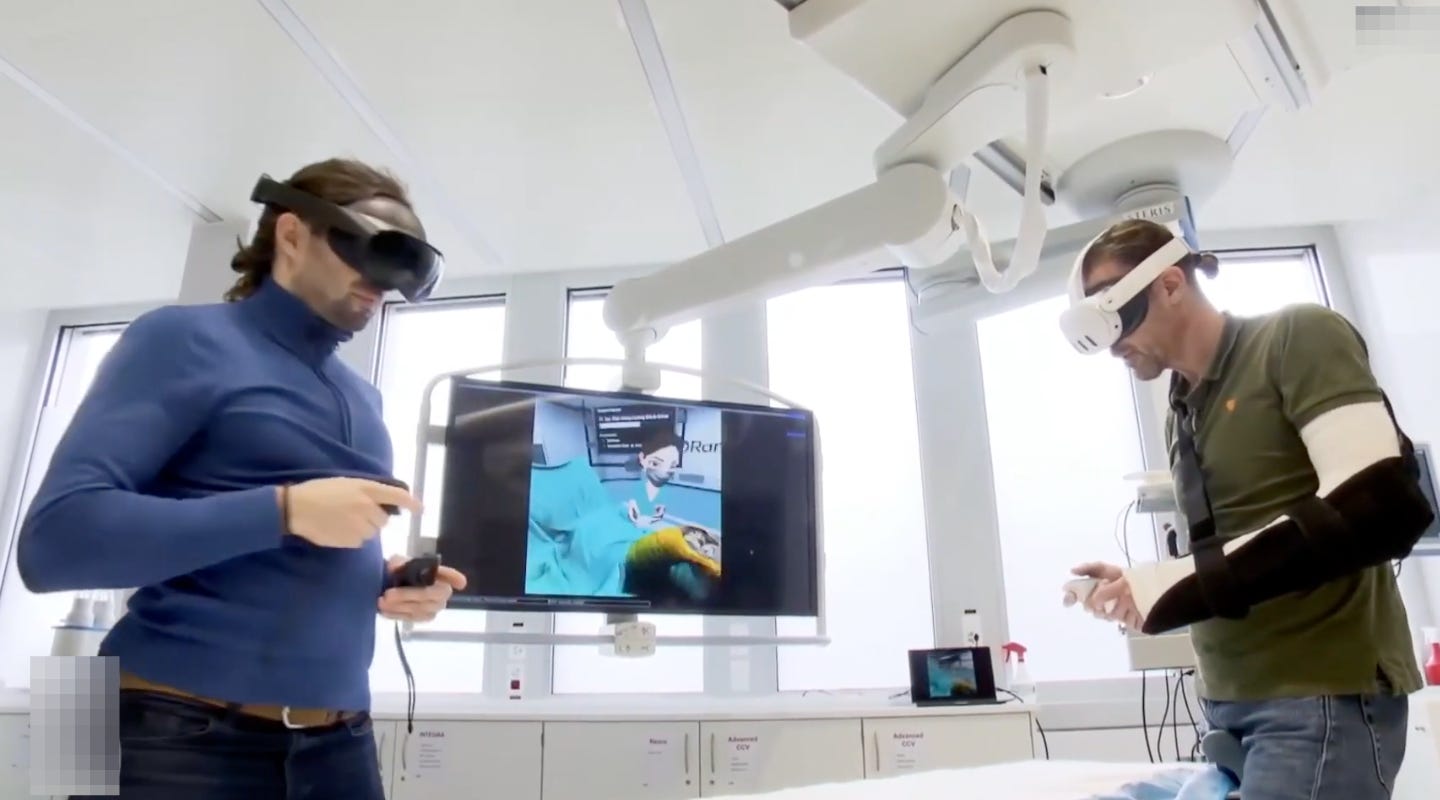
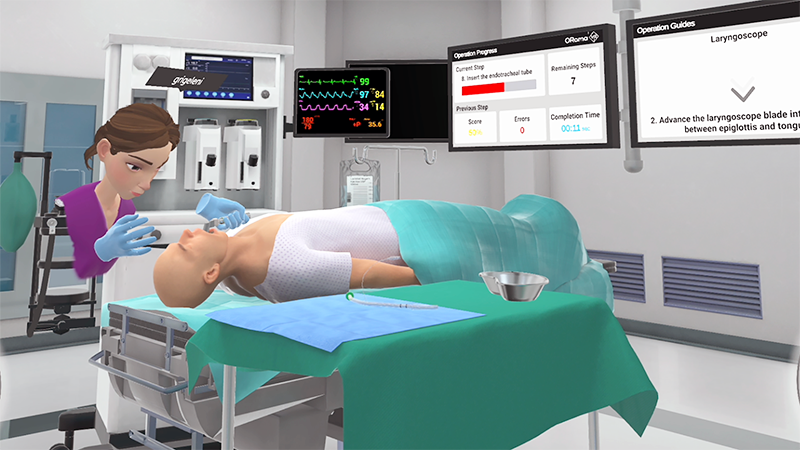
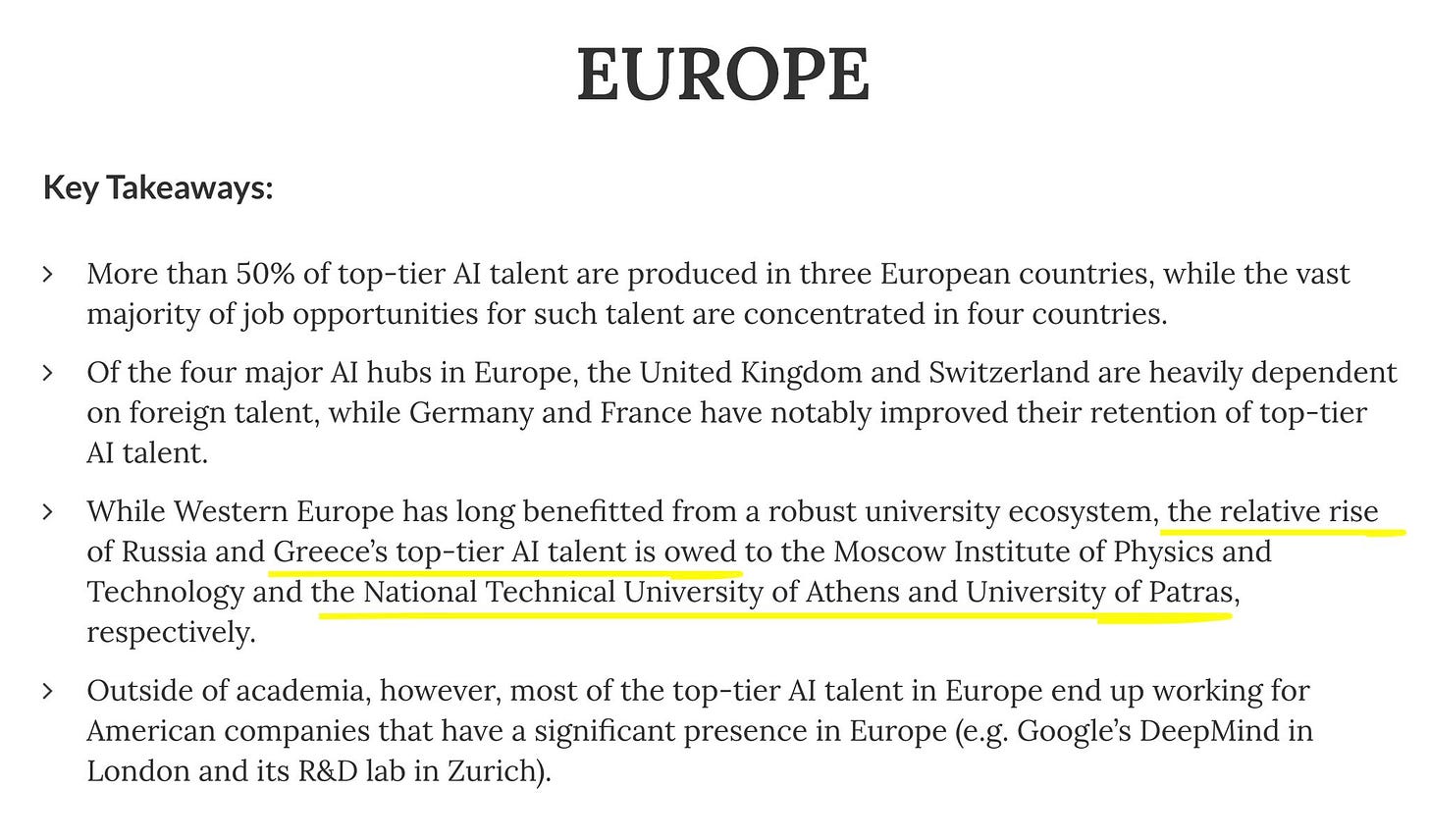
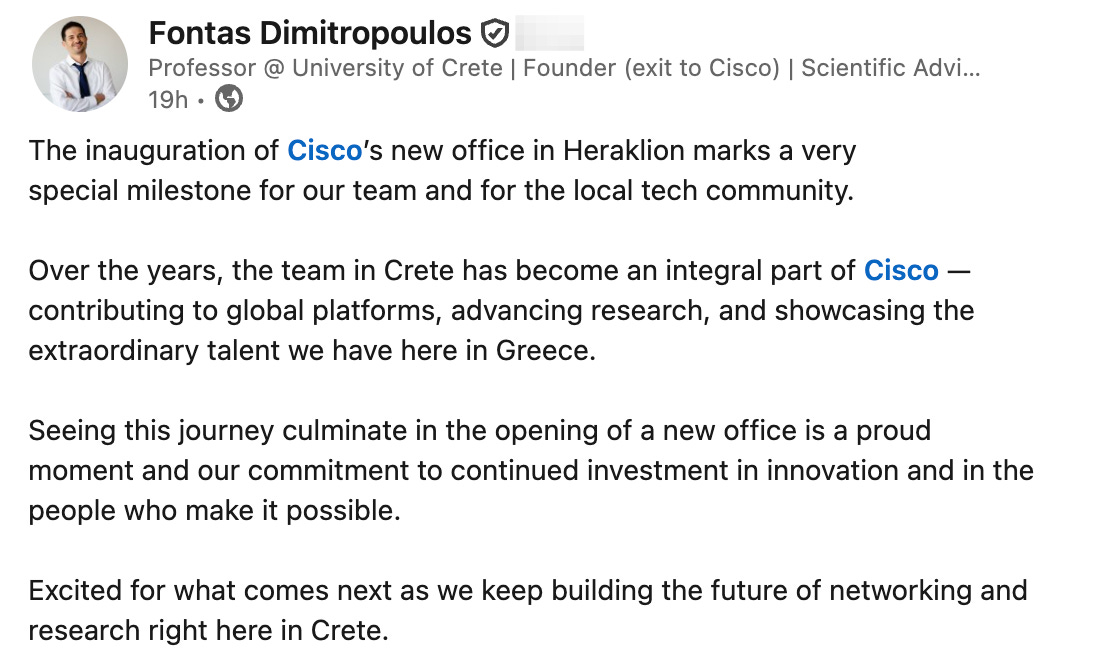
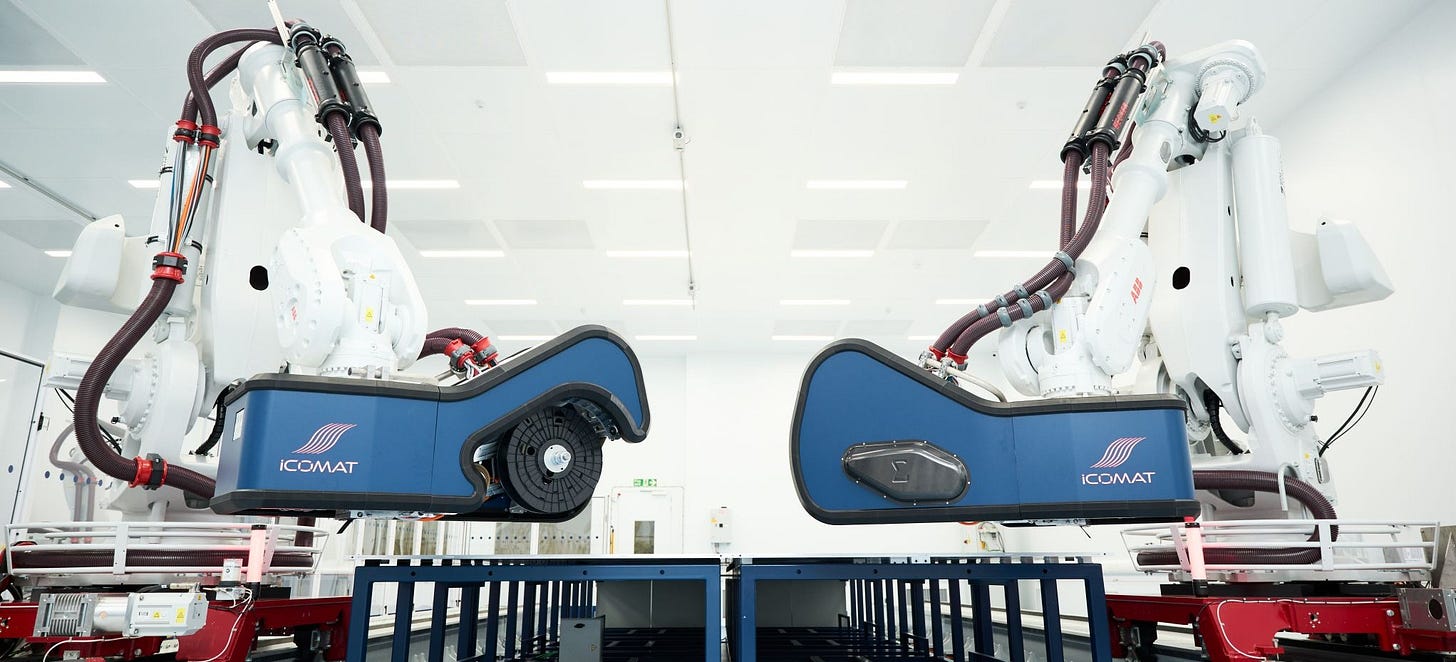
Couldn't agree more. This brilliantly builds on your earlier discussions about the ethical scaling of AI solutions. Pinpointing training as the critical bottleneck, especially with such severe medical errors, is incredibly astute. Computational Medical XR looks like a pivotal development for patient safety and evolving clinician practises. So insightful.